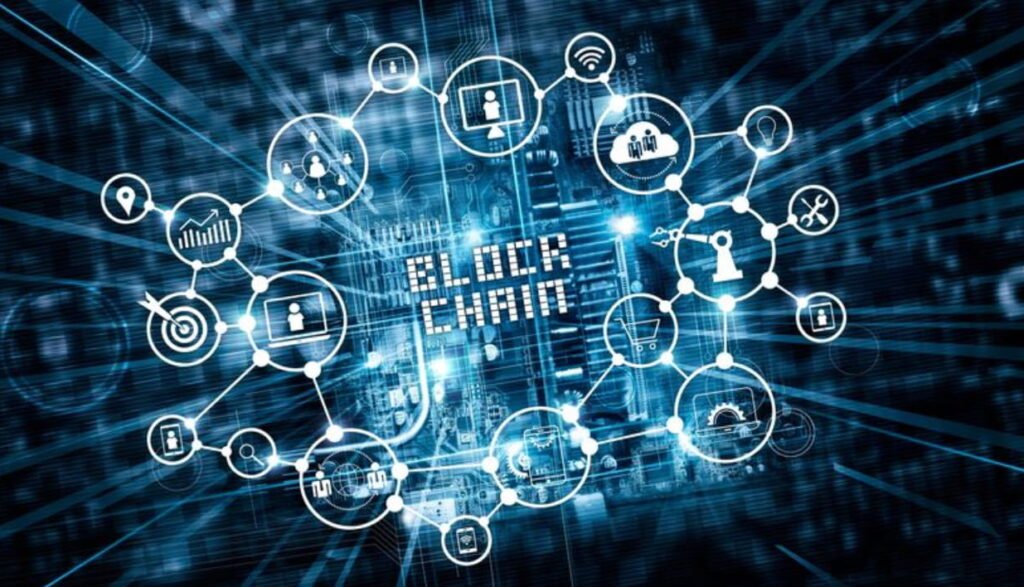Driven mainly by technology developments, the gaming sector has experienced significant changes recently. Blockchain technology’s inclusion in online gaming marks one such considerable transformation. Players have been delighted in virtual worlds and have gathered in-game objects, skins, or achievements for decades. Still, the ownership of these objects has been confined to the game surroundings. Players who log off lose access to these digital products. Blockchain technology is poised to transform this scenario since it makes in-game objects ownable in ways not possible a few years ago. This paper will investigate how the blockchain sector is changing the definition of ownership in gaming and what this implies for the future of digital assets.
Blockchain lets players control these digital assets, bringing about a fundamental change. Blockchain technology offers a distributed, open ledger that guarantees ownership is tracked but can also be bought, sold, and transferred without depending on a central authority. Every object is linked to a distinctive cryptographic token that denotes ownership, typically as non-fungible tokens (NFTs). Once a player purchases an in-game item, they may prove they own it permanently, regardless of whether the game server closes, using a blockchain, which records the ownership of the items and is unchangeable and verifiable.
For a rare blade or skin in an online role-playing game like World of Warcraft, for example, think about it. Usually, not the player but the game publisher would own this object. The item would be lost or useless if the game closed or the player ceased playing. With NFTs, nevertheless, the player owns a verifiable, tradable, permanent replica of that thing. They might exchange it among several games, sell it to another player, or show it in virtual environments or markets. One of the most important effects of this technology is that it lets players move objects between games or platforms—something that was not possible in the past. Beyond one game, players can engage in an extensive market around digital commodities and keep ownership across other titles.
Blockchain-based ownership of in-game assets drives a boom in distributed markets where users may trade, sell, or auction their goods. These systems guarantee openness and lower transaction expenses by running free from intermediaries. Designed to manage NFT-based transactions, well-known sites like OpenSea or Rarible provide gamers a venue to purchase and sell in-game goods over several gaming environments.
These scattered markets also give developers chances to design original in-game economies. Rare items with proven scarcity allow developers to let gamers buy and resell products on an open market. This increases value for digital products and generates a vibrant, player-driven economy. Apart from these benefits, distributed game markets often charge less than conventional game markets, where the game producer or publisher takes a cut. Blockchain-based players maintain more sales or trade gains and manage their digital assets.
One of the main benefits of How to Create a Blockchain Wallet ownership is provenance. Verifying the validity and value of an artwork depends on knowing the historical record of ownership, so provenance is essential in the art field. Blockchain can produce the same effects for digital products. Every transaction involving an in-game item is logged on the blockchain; this history is unchangeable and open.
This function of blockchain guarantees that players may confirm an object’s origin, ownership history, and rarity, directly affecting its worth. For instance, an in-game object connected to a significant accomplishment or owned by a well-known athlete could have more worth because of its particular background. This generates a market where objects are valuable for their verified history and authenticity, and their rarity or utility within the game.
Moreover, this traceable ownership opens players new income sources. In games where uncommon objects are highly sought, players might generate value by gathering and marketing these objects on the open market. Gamers can use the time and effort they spend on games to create authentic, transferable goods, enabling fresh revenue from gaming.
Blockchain technology creates new opportunities for developers while giving users more control over their digital resources. It allows developers to bring fresh ideas, such as player-driven economies, safe markets, and even reward systems based on the ownership and exchange of digital items. Blockchain presents a means of honoring players for their involvement in the larger ecosystem and their in-game successes.

Moreover, including smart contracts helps developers maintain some degree of control. These self-executing agreements enable developers to set in-game transaction requirements. For example, a developer can construct a contract allowing users to own and sell digital assets for a small cost. Developers and players benefit from this approach, which works together to advance the ecosystem.
Blockchain technology will become critical in determining the direction of virtual economies as they develop. The concept of really ownable in-game assets is only a starting point. Players will expect their digital products to be as valuable and portable as actual things, as virtual worlds become more immersive and linked. Blockchain guarantees that objects are owned, trackable, and traded across several games and platforms, enabling this.
Moreover, the interoperability of assets will grow as more games and virtual worlds apply blockchain technology. In addition to owning objects in particular games, players can move such objects between several platforms and virtual worlds. This connectivity might result in developing a vast worldwide virtual asset market where players may buy, sell, and trade objects flawlessly.
Blockchain’s Impact on Blockchain
chain technology transforms players’ perspectives and actions with in-game resources. Absolute ownership, distributed marketplaces, and public provenance turn fleeting, game-specific things into valuable, transferable assets on blockchain. This change gives players more power and opens fresh chances for creators, enabling a future where virtual economies flourish. With blockchain, in-game products may be owned, sold, and used across platforms, opening up new opportunities for the gaming industry and its customers. They are more than pixels on a screen.


